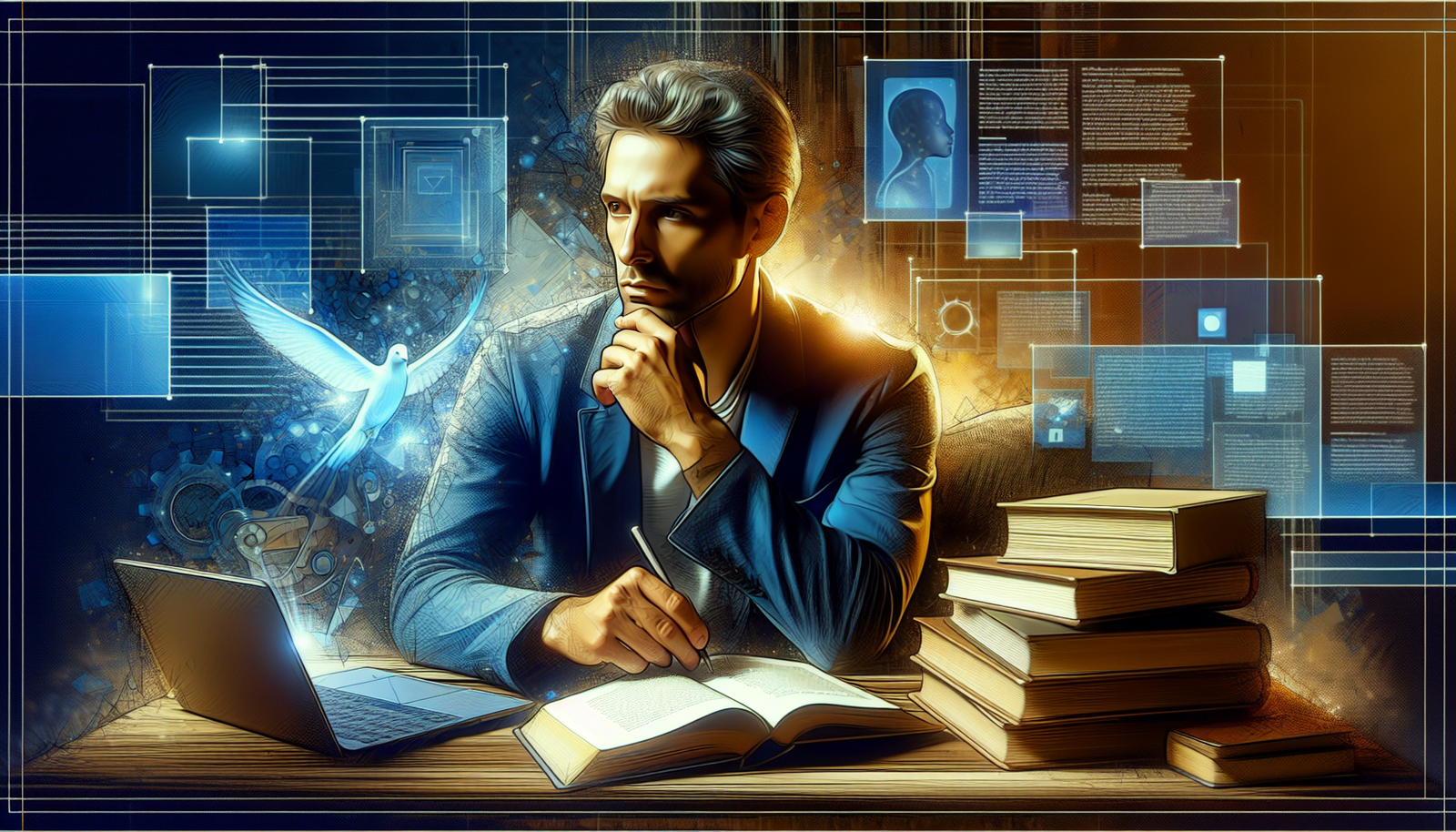Artificial intelligence is revolutionizing literary creation and breaking free from established dogmas. A daring author defies conventions by renewing their creative process. *Unhindered*, they unveil their innovative approach, transforming the collaboration between man and machine.
Artists confront new tools shaping their works, offering an entirely new dimension to modern creativity. Through their bold use of AI, they testify to the profound changes in contemporary literature and encourage everyone to rethink their relationship with this technology.
A relaxed use of artificial intelligence
Vincent Ravalec, writer and screenwriter, has embarked on an unprecedented creative adventure by integrating artificial intelligence (AI) into his creative process. Since its availability, he has used AI without apprehension, fully exploiting its capabilities. This approach allows him to redefine the contours of his work and access new artistic dimensions.
Creativity and technology
Never before has technology allowed such a symbiosis between the artist and digital tools. The artist finds that AI generates proposals, sometimes surprising, that enrich their literary creation. For example, when writing scripts or textual works, they use AI as an assistant capable of providing inspiring ideas and suggestions in real-time.
The impact on the artistic world
This approach elicits varied reactions within the artistic community. Some welcome it enthusiastically, recognizing the opening of new lines of thought and experimentation. Others, on the contrary, show strong resistance, fearing that AI compromises the very essence of artistic creation.
The different perceptions of AI
Opponents of AI struggle to overcome their fears. Many of them have not taken the time to understand the essential functioning of these new tools. A fringe of artists timidly explores AI, fearing being ostracized by their peers for this boldness. Ravalec, for his part, takes advantage of this innovative tool to conceive and develop his projects while raising his colleagues’ awareness of the benefits it can bring.
The stance on the future of art
Ravalec urges creators to view AI as a partner in the act of creation. He believes that understanding and mastering these technologies is a necessity for the future of art. In his master class sessions, he shares his experience and encourages other artists to embrace these new working methods.
Training and knowledge sharing
The training sessions he offers illustrate his desire to encourage the next generation of artists to embrace these revolutionary tools. During these sessions, he discusses successes such as the creation of a biography of Jesus entirely illustrated by AI. This book embodies the unexpected potential of artificial intelligence and bears witness to its mark in the literary field.
A long-term vision
In discussions with his peers, Ravalec closely observes the developments in the creative and technological ecosystem. Dialogues are crucial, allowing for the refinement of respective approaches to these new realities. Beyond technical innovation, it is all about rethinking the value of the work and the place of its creator in a world where AI is ubiquitous.
Reflections and perspectives
The use of artificial intelligence in art raises numerous ethical questions. The issue of intellectual property and human creativity in the face of an automated system deserves to be addressed. Could AI influence the foundations of artistic creation, redefining notions of value and dissemination? The answers to these queries shape a future where man and machine collaborate to give birth to what could be seen as a new artistic renaissance.
Implications for society
The growing adoption of this technology offers promising perspectives but also raises questions about its social integration. For AI to be seen as an asset for creators, efforts must be made in terms of understanding and education around these innovative technologies. Art endures in a constantly changing world, and the interaction between humans and AI is a fundamental aspect of it.
Frequently asked questions
How does Vincent Ravalec use artificial intelligence in his literary creation?
Vincent Ravalec uses artificial intelligence to enrich his creative process, whether to generate ideas, produce images, or even compose music. He considers AI a partner in his artistic work.
What is Vincent Ravalec’s approach to integrating artificial intelligence into writing?
Ravalec adopts a relaxed approach, seeking to demonstrate that artificial intelligence can be a tool for enrichment rather than a threat to traditional literary creation.
What types of artificial intelligence tools does Vincent Ravalec use in his work?
He uses various AI tools, including text generators, music composition software, and image creation software, to explore new avenues in his works.
Are there reservations or criticisms regarding Vincent Ravalec’s use of artificial intelligence?
Yes, some artists express concerns about the use of AI, fearing it will replace human creativity, although Ravalec argues that these tools can enhance the creative experience without undermining it.
Does Vincent Ravalec need to adhere to ethical standards when using artificial intelligence?
While the ethics surrounding the use of AI is a topic of discussion, Ravalec always works within an ethical framework, seeking to use AI responsibly for the benefit of art and culture.
How has the use of artificial intelligence influenced Vincent Ravalec’s writing style?
The integration of AI into his writing process has allowed Ravalec to experiment with various styles and explore themes he may not have otherwise considered.
What are the main concerns regarding the impact of artificial intelligence on literary creation?
Concerns include the dilution of human creativity, potential plagiarism, and a uniformity in creations that could result from excessively rigid use of AI.
Does Vincent Ravalec share his experiences and knowledge about the use of artificial intelligence?
Yes, Ravalec participates in training sessions, round tables, and master classes where he shares his experiences and expertise on the use of AI in the literary field.






